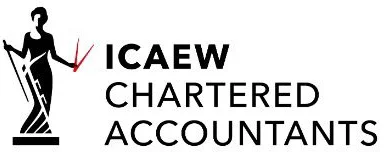Need Help?
FAQs
How are profits and losses allocated among partners in a partnership for tax purposes?
Profit allocation is typically determined by the partnership agreement and is based on factors such as ownership percentages and capital contributions. Each partner’s share of the partnership income is reported on their personal tax return.
What are the key tax compliance requirements for partnerships?
Partnerships are required to file an annual partnership tax return. This return includes information on the partnership’s income, deductions, and profits allocated to each partner.
What expenses can be claimed by partners to reduce taxable profit shares?
Partners in a business partnership can often reduce their taxable profit share by claiming various allowable expenses. These expenses typically encompass business-related costs, including rent, utilities, office supplies, and professional fees. Partners may also be eligible to deduct depreciation on capital assets, such as equipment and vehicles, and claim expenses related to business travel, home office use, and interest on business loans. Additionally, contributions to retirement plans, professional fees, employee benefits, and even charitable contributions made by the partnership may be deductible. Partners should maintain meticulous records and seek guidance from tax professionals to ensure that their expense deductions align with tax laws and the terms of their partnership agreement.
What consequences do partnerships face when they inaccurately report or neglect to fulfill their tax obligations?
Penalties for partnerships that fail to declare or pay tax correctly commonly may include:
Late Filing Penalties: Partnerships that do not file their tax returns by the specified deadline may face late filing penalties. These penalties often accrue daily or monthly until the return is filed.
Late Payment Penalties: If the partnership fails to pay the tax owed by the due date, late payment penalties may apply. These penalties are typically assessed as a percentage of the unpaid tax and may increase over time.
Interest Charges: In addition to penalties, interest charges may be applied to the unpaid tax amount. Interest continues to accrue until the tax liability is paid in full.
Inaccurate or Fraudulent Reporting Penalties: Providing inaccurate information or engaging in fraudulent reporting can result in severe penalties. This may include fines or criminal charges in some cases.
Tax Audit and Investigation: Non-compliance may trigger a tax audit or investigation by the tax authority, leading to additional scrutiny and potential financial and legal consequences.
Loss of Tax Benefits: Partnerships that do not comply with tax regulations may lose out on certain tax benefits or deductions they would have otherwise been eligible for.
What role does the partnership's tax advisor play in managing partnership tax?
A tax advisor can assist in ensuring proper tax compliance, optimising tax efficiency, and providing guidance on partnership tax matters. They help partners navigate tax regulations, make informed decisions, and meet filing deadlines.
How does HHM handle partnership tax matters?
HHM takes a comprehensive approach to manage partnership tax matters. We assess the partnership’s tax structure, handle profit allocation, ensure tax compliance, and optimise tax efficiency. Our services also encompass capital and debt management, quarterly reporting, communication with tax authorities, partnership agreement support, and tax planning. HHM offers expertise and guidance to enhance tax compliance, minimise liabilities, and support the financial well-being of partnerships, while staying abreast of evolving tax laws and regulations.
















